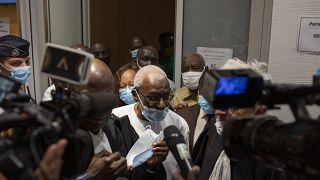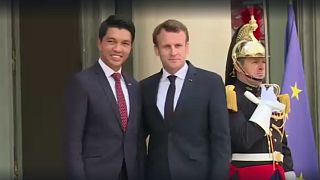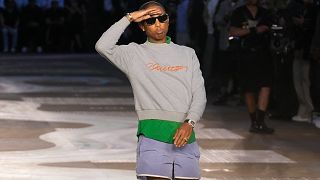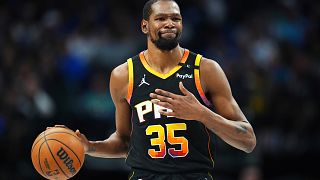France
Lamine Diack, the ex- IAAF president charged with corruption and doping cover-ups while he ran the track and field, has vowed to clear his name when his trial opened in Paris Monday.
At the opening of the hearing, the prosecution asked that the two-week trial be delayed to weigh new evidence received from Senegal, where Diack was born and his son, Papa Massata Diack, also charged in the case, lives, shielded from an international arrest warrant issued by France.
The court agreed, pushing back the trial to a later date, expected in June.
Addressing the court, Diack, 86, asked that in the wake of the delay, he be allowed to travel to Senegal to visit his elder brother, who recently celebrated his 100th birthday. Diack has not been allowed to leave France since his arrest in 2015. But he promised the court that he’d come back to France if allowed to travel, saying he wants to clear his name.
“I want to clear up all of this,” Diack said. “I will clean my honor.”
The court refused his request.
Leaving the hearing, Diack said: “I have a lot to say, but not now.”
The trial had been expected to detail evidence that Russian athletes paid millions of dollars to cover-up their suspected doping. This was to enable them compete at the Olympics in 2012 and other competitions.
Diack, who presided over the sport’s governing body for almost 16 years, is one of the accused recipients of the payments.
Prosecutors said they received the new evidence, three thick folders of notes that they held up in court, on Monday only hours before the hearing opened. They said it included statements that Papa Massata Diack made to investigators in Senegal and banking details from three of his consultancy firms.
Lamine Diack’s lawyer William Bourdon said delaying trial was bad for everyone. He pleaded for Diack to be allowed to leave France, saying: “This man will come back and explain himself.”
In refusing to lift the travel ban, the court noted that France wouldn’t be able to get Diack back from Senegal if he refused to return of his own accord, because the west African nation does not extradite its citizens.
Diack is being tried for corruption, money laundering and breach of trust. Prosecutors say he directly or indirectly solicited 3.45 million euros ($3.8 million) from athletes suspected by the IAAF of doping who paid to have their names cleared so they could continue competing.
Present in court were a lawyer who advised Diack, Habib Cisse, and a doctor, Gabriel Dolle, who oversaw drug-testing at the IAAF. He’s accused of taking payments to delay doping cases.
Two Russians are also being tried in absentia. They are Valentin Balakhnichev, a former IAAF treasurer, and Alexei Melnikov, a coach who led Russia’s long-distance running program.
AP











02:22
Cameroonian marine conservationists trained as scientific divers
01:02
Football: Paul Pogba rumoured to join AS Monaco
01:00
Interact with art in 'Euphoria: Art is in the Air' at Grand Palais
01:05
South Africa's ex-president loses bid to have arms deal graft charges dropped
00:47
Two people killed and hundreds arrested in France during Champions League win celebrations
00:45
Two dead and hundreds arrested after PSG celebrations